“The key to the narrative is to re humanize the population and to give them their faces and their stories back and I think it’s really important that we’re able to do that now.” – David Miliband
In the developed world, refugees are often viewed as a menace or a burden. That is just one of the myths busted in this episode of the Global Goalscast. For one thing, nine out of ten refugees don’t come to the developed world. They flee from one poor country to another. For another, in many of those countries, innovative thinking has turned refugees into an opportunity to develop the economy and make life better for both newcomers and their hosts. Uganda gives out land to refugees. Kakuma Camp in Kenya creates business and agriculture zones where hosts and refugees can work together. Edie Lush and Claudia Romo Edelman talk to the International Rescue Committee, UNHCR, Western Union and others about this urgent topic. Urgent because in the years to come the number of displaced persons will climb as climate change adds to the disruption.
Above Image: UNHCR staff and partners in Cox’s Bazar, Bangladesh, relocate a group of Rohingya refugees from areas in the Kutupalong settlement at risk of landslides and floods to safer shelters in the Camp 4 Extension site.
Featured guests

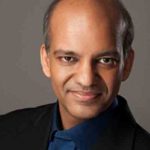
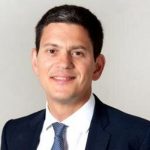
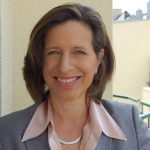
Melissa Fleming is Head of Communications and Chief Spokesperson for UNHCR, the UN Refugee Agency, and recently served as Senior Advisor of the UN Secretary General. She travels to war zones and refugee camps to give voice and build support to the millions of people forcibly displaced worldwide. She leads global media outreach and campaigns to generate news coverage, and operates a multimedia service to distribute refugee stories. She is a frequent interview guest on international media platforms and a leader in social media engagement. Her talks are featured on TED.com. She is the author of the book, A Hope More Powerful than the Sea.
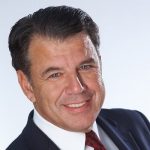
Hikmet Ersek is President, Chief Executive Officer and Director of The Western Union Company, a Fortune 500 global leader in digital and retail cross-border money transfer and payments services. With more than 30 years of executive experience in financial services, Ersek joined Western Union in 1999 and became CEO in 2010. Under his leadership, Western Union has successfully diversified and evolved its business to become a global payments company. Ersek began his career in financial services in Europe when he joined Europay/MasterCard in Austria in 1986. A decade later, he joined General Electric (GE) Capital, where he also represented the GE Corporation as the National Executive in Austria and Slovenia. He speaks English, German and Turkish fluently, and enjoyed a short career as a professional basketball player in Europe prior to his private sector experience. Ersek holds a Master’s (Magister) degree in Economics and Business Administration from the Wirtschaftsuniversität (University of Economics) in Vienna, Austria.

Elizabeth Roscoe is Executive Director of the Western Union Foundation. Roscoe joined Western Union in 2013 and most recently served as the head of Global Product Marketing, Brand and Communications for Western Union Business Solutions where she was responsible for leading the Global Product Marketing and Brand teams to develop marketing programs that create demand for products and services including WU® EDGE, and Western Union Business Solution’s Education and NGO platforms. Roscoe has 20 years of marketing experience that spans financial services and consumer goods. Prior to joining Western Union, Elizabeth held a range of marketing roles at American Express, PepsiCo, Sainsbury’s, Campbell’s Soup Company and Nestle.

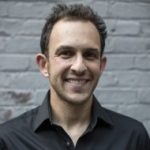
best bv rolex day date rolex calibre 2836 mens m128238 0046 champagne dial gold tone interior incredible structure.ηλεκτρονικο τσιγαρο with unrivaled selections at the lowest prices.
Additional Resources
Want to listen more to of the TEDx Kakuma Camp?
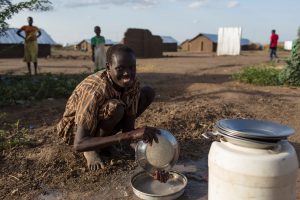
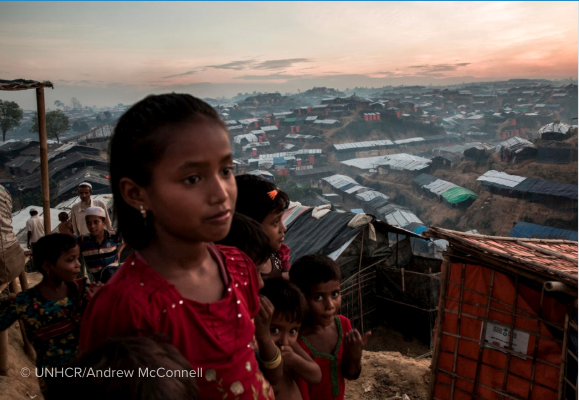
Read more about Global Trends in Forced Displacement from the UNHCR
Transcript
Mary Maker: [00:01] Now I want you all to be very quiet just for a moment. Did you hear that the sound of silence. No gunshots. This was my first memory.
Apurva Sanghi: [00:25] Most people don’t know that nearly nine out of ten refugees are hosted not by richer countries but by poorer ones.
David Miliband: [00:34] And the truth is that what is rampant is not the measured care for fact based arguments about refugees and displaced people. What is rampant is mythology about that says refugee is another codeword for terrorist.
Claudia: [00:54] This is the Global GoalsCast.
Edie: [00:56] The Podcast that asks if we can change the world.
Claudia: [01:00] On this episode we’re going to be talking about refugees, innovation and opportunities related to them.
Edie: [01:06] We’re going to be busting myths about refugees by visiting a camp that shows how refugees can be an economic boon rather than a burden.
Claudia: [01:15] And we will be talking about refugees as opportunities, how they contribute to the communities that they have moved into…
Edie: [01:20] How They can be a source of development and growth…
Claudia: [01:23] And How refugees are human just like the rest of us. And every one of us can be a refugee.
Edie: [01:30] I’m Edie Lush, here with Claudia Romo Edelman here in London. And we’re going to be back after this.
CREDITS: [01:39] Thanks to HARMAN. The official sound of Global GoalsCast.
Edie: [01:47] Welcome back. So the world as you know has a very big challenge of displaced persons, the world’s largest refugee crisis. But we are not here today to depress you. Instead we want to capture the scale of the challenge, share some positive things that are working and describe some potential solutions for tackling this crisis as it’s an issue that will only continue to grow.
Claudia: [02:08] That is right. For one thing the narrative is often inaccurate. Many refugees have actually improved life in the places that take them in. If that’s a process you are even if it doesn’t just keep listening to help us understand their refugee situation. I spoke to one of the world’s experts on the topic, David Miliband who’s the head of the International Rescue Committee which was created to resettle the millions of people driven from their homes by World War Two. But Miliband and the IRC have a new challenge now.
David Miliband: [02:43] Let’s start with the context which is that there are more refugees and displaced people than at any time since the Second World War. That’s why I think it’s right to talk about displacement crisis. 25 million refugees and 40 million internally displaced. These are people who are fleeing from war and conflict and persecution. They’re not economic migrants moving from one place to another in search of a better life. They are people fleeing for their lives so that that is the community that we are talking about. Today, the average displacement is decades and that means that we’re talking about a multigenerational displacement that is increasingly in urban areas not in refugee camps where there are new opportunities for people to participate in the market economy as well as in the wider society. And it’s imperative if someone is displaced for 10 20 years it’s imperative on that timespan to work not just to help people survive by giving them sufficient food or water or healthcare but actually give them the chance to thrive. The truth is that what is rampant is not the measure to care for fact-based arguments about refugees and displaced people. What is rampant is mythology about that says refugee is another code word for terrorists that says the reason there is unemployment is because there are too many migrants. Theres a set of catch phrases that aren’t based on reality but are nonetheless far more powerful than the effort that we’re making. The key to the narrative is to rehumanize that population and to give them their faces and their stories back. And I think it’s really important that we’re able to do that.
Edie: [04:29] Remember there’s a difference in international law between refugees and migrants.
David Miliband: [04:34] It’s not that one is good and the other is bad is that they’re different and there are different legal and moral responsibilities attending to states and to citizens when it comes to people who are bombed from their houses as it does to people who are choosing to leave their houses. And my own view is that countries will always insist that they have to keep their immigration policies as a matter of national jurisdiction. I think it is possible to argue that when it comes to refugees there are international obligations and that is an argument that still has to be prosecuted. There are still 50 or so countries that haven’t signed the Refugee Convention and some important countries. And I think that it’s going to be really important that we don’t lose the integrity of that commitment.
Edie: [05:33] David Miliband says we need new ways to handle displaced persons. So the Global Goals cast went out looking for them and we found an incredible example in Kenya.
Claudia: [05:43] Not far from the Rift Valley the birthplace of humanity. Economist Apruva Sanghi explained why the success of this Kakuma Camp is so important.
Apruva Sanghi: [05:55] Most people don’t know that nearly nine out of 10 refugees are hosted by richer countries but they can do it with almost half a million refugees. It is countries like Kenya that have become the shock absorbers for people fleeing their homes from conflict.
Edie: [06:17] Built in 1992 Kakuma is home to more than one hundred eighty five thousand people who have fled conflict and disaster from South Sudan Somalia, Burundi and the Democratic Republic of Congo and it’s located in the northwest corner of Kenya the border with South Sudan Ethiopia and Uganda.
Claudia: [06:37] In the developed world, Refugees are often portrayed as a burden and as a threat. But Kakuma has become a thriving marketplace benefiting the refugees and their Kenyan host. There are more than 2000 businesses in operation. The refugees trading with local community host by everything from food and cosmetics to mobile phones. The area generates more than 56 million dollars in business and approximately 69 percent of the camp’s residents also had access to mobile services and the Internet.
Edie: [07:10] That’s right. I spoke with Melissa Fleming the head of communications and chief spokesperson for the United Nations High Commissioner for Refugees about Kakuma.
Melissa Fleming: [07:19] There is a section of the camp called the Calu Bay and this is a new tape. We don’t even call it a camp anymore. We call it a refugee settlement and it’s a settlement because it includes the host community. It includes an agricultural zone where refugees and the local community can grow their own food. It includes an economic zone where refugees and the host community can start businesses. It has health clinics and schools where both the host community and the refugees can have access. So it is an integrated approach where self-reliance is fostered and an investment in that community where there was nothing before is taking place.
Edie: [08:10] So Melissa told me about an event that Kakuma hosted recently. They have the first TEDx in a refugee camp.
Claudia: [08:18] And Kakuma is such an extraordinary place. I’ve been in Kenya a number of times in other refugee camps like Nadab where they are used to be there for 30 years and only receive they cannot afford, they can’t produce, they only get. Kakuma seems to be thriving and giving to their host communities. We have a voice from the refugee camp. This is Mary Maker who spoke at the Kakuma TEDx event.
Mary Maker: [08:46] Gun shots were the audio of the day my community was constantly under attack. Planes would drop these spinning and terrifying bombs That chopped off people’s limbs. The most terrifying thing ever single parents was to see their children being abducted and turned into child soldiers. My mother dug a trench that soon became a home but yet we did not feel protected. She had to flee search of a safe place when I was 4 years and my younger sister was two. We joined a huge mass of people and together we walked for many agonizing days in search of a secure place. But you will barely rest before we were attacked again. We finally made it across the Kenyan border. Yes that was the longest journey that I have ever had in my whole life. My feet were raw with blisters. To Our surprise we found other family members that had fled into the camp early on. Now I want you all to be very quiet just for a moment. Did you hear that. The Sound of Silence. No gunshots. Peace at last. That was my first memory of this camp.
Claudia: [10:34] This could be me and it could be you.
Edie: [10:38] Yeah and this is where we really bust up the narratives here in the developed world. We are used to hearing these tales of escape being the end of the story. The miracle is that that sound of silence from Mary Maker and the other refugees in Kakuma the miracle is what happened next. They become productive members of their new society in Kenya.
Claudia: [10:59] The truth is that most refugees are not living in Western countries like Germany or the U.S. Eighty five percent of refugees live in developing countries.
Edie: [11:07] So guess who host the most refugees? Turkey Uganda Pakistan Lebanon Iran and Jordan.
Claudia: [11:15] Jordan, absolutely.
Edie: [11:17] And to make that work. We need more and more as places where communities are refugees and communities are people who take the men are both better off than before the refugees arrive.
Claudia: [11:28] Everyone around Kakuma does better. Economy better, refugees better Here is economist Apurva Sanghi again and by the way Dracona the county where Kakuma is located.
Apruva Sanghi: [11:42] Because of refugees Draconas economic output, which is the total value of all goods and services produced in Dracona county, has increased permanently three and a half percent. So if you’re a Dracona resident making say 100 Kenyan shillings by selling food such as ugali Kenyan maize before refugees arrive. Since their arrival net of inflation you will now be making over a hundred and three shillings, Year after year. Not only that refugee presence has also added jobs to the economy. So for every hundred jobs previously available there are now a hundred three jobs, year after year. Now I know what some of you are thinking you are thinking hm Apruva these 3 percent increases are not exactly shall we say killer statistics. I’d agree but perceptions aside we also wanted hard data. So we compared various measures of physical well-being of Dracona residents. One good measure is SSF, sum of skin folds. SSF measures body fat content which in impoverished settings such as these is a positive indicator of a person’s physical well-being. And we found that Dracona residents who lived closer to the camp had higher SSF numbers and this is true for both men and women. So refugee presence has grown the economy, added jobs, And has increased well beings for all Dracona residents. For sure not everybody benefits but the average is more than gloom.
Claudia: [13:38] Skinfolds? What A way to measure success.
Edie: [13:40] I know rather than being a humanitarian challenge, refugees can be a development opportunity. Melisa Fleming explains more.
Melissa Fleming: [13:48] The secretary general visited Bangladesh together with the president of the world bank Jim Kim with the high commissioner for refugees and committed to developing that very poor region of Bangladesh that is taken in one million Rohingya refugees so that their hospitals their school systems their roads are also improved and that there is for the host community that has been willing and been so compassionate that they’re going to get some value out of being such good people.
Edie: [14:26] So measuring skin folds is one type of innovation. Here’s another.
Melissa Fleming: [14:30] Uganda’s one really good example of enlightened policies that say coupled with innovation. It used to be that the response to a large number of refugees coming into countries was OK. The government would say we will keep our borders open we’ll provide safety but you have to live in a camp and you’re not allowed to work and you’re not allowed to go anywhere outside of the camp. This has changed. Uganda for example offers every refugee who comes into their country A piece of land and on that land they can grow their own food. They are also allowed to move throughout the country to start a business if they want. And we’ve seen huge benefits to the refugees. First of all they’re self more self-reliant than they would be before. And also they’re able to contribute to the economy in some way.
Edie: [15:23] So this different attitude towards refugees being allowed to work is in itself an innovation.
Claudia: [15:29] In Uganda as well, there is some example of Belgium changing the way they give bilateral help to the country by using a third party company telecoms to give credit to women giving birth and registering their babies. That is an incentive. We said that one of our goals was to change the narrative about refugees.
Edie: [15:50] That’s right. One of the most contested stories in this area is the role of the private sector plays sending money backwards and forwards between refugees and migrants in their home countries and that contested story that contested role that Western Union and other companies in the private sector play.
Claudia: [16:07] But I have a different take. So I went to talk to the CEO of Western Union Hikmet Ersek who is a migrant himself.
Hikmet Ersek: [16:14] Some of my employees say that when I get out of the plane in Istanbul I walk like a Turk. When I got out of a plane in theU.S. I walk like an American or talk like an American. In Austria Talk Like A Austrian. So this challenge in the past, Claudia, made me actually an advantage now to communicate with people from different race different religions different backgrounds very easy. People feel that what they tell me that I am the same like them.
Claudia: [16:46] What is western union not only a commitment but also work with refugees?
Hikmet Ersek: [16:50] As a global company we take global responsibility. The refugee crisis is a global issue and try to build bridges as we’ve seen in building walls. Building bridges means that the road will be in a better position by building bridges. Good things happen. People move jobs got created Money Moves. By building walls, allthings stop. You don’t want that. I think as Western Union, a global company take a stand on that. Don’t forget refugees are people like you and me. I can tell you a story as the Syrian refugee crisis started, we exactly knew that where they come from and where are they going to be next going. Because we were following them. It was sent money from Turkey to Syria to them from Greece to Turkey or from Serbia to Turkey to the loved ones or from Sweden to Turkey or to Syria to support their loved ones. And you could imagine we could track them how much they say.
Claudia: [17:50] And you were the first one to start actually paying attention to that moment. You were predicting through tracing the movement that there was something cooking and you were able to negotiate on behalf of these people to say how can we do something so that they can get money and access money and transfer the money so that they can survive.
[18:08] It was more a support thing we didnt want to make huge money out of that we just went to cover our costs and be paid special fees for refugees to send money to Syria or to send money to refugees. We gave specialI.D. restrictions for refugees. We talked to theU.N., we talked to our money laundering regulator. And I have to say that it was unbelievable, the stories behind that supporting the families was really good. And the good thing is that today’s refugees who use that on that day is where they were challenged are becoming customers.
Claudia: [18:44] I know how committed you are to changing the life of other people because you’re one of them. I want to I want to ask from that amount of money that is exchange every year from the 300 billion to the 600 billion in general. There’s a report that says that 32 billion dollars of those are lost in your high fees and high commissions and. Tell me tell me what is the issue.
Hikmet Ersek: [19:13] The issue is definitely something brought up but we always show that it’s not the case we operate in 200 countries. We operate we call it Corridor sending money from one country to another country from Germany to Russia from Germany to Egypt from US to India or fromU.S. to Mexico. If you calculate that there are 30 to 221 to 40000 corridor’s for every corridor every destination has different needs different prices different consumer behavior. So there is no one rule that every transaction seem. In average are transactions are 300 dollars dependent on various said you will send money to India, Maybe the charges are a lot less but you will send money to Pyramus but the charges are higher because we have low access there. Maybe it costs us more in special circumstances. We do that as I said earlier we are a very mission driven brand. Like when Hurricane Maria happened in Puerto Rico immediately we bring the prices down to 0 fee or a flood in Bangladesh or a refugee crisis in Syria immediately bring the prices down to zero fees and we don’t make money in that corridor for a certain time.
Claudia: [20:37] So it was important for us to present the perspective from the company’s side. We also asked the head of the Western Union Foundation Elizabeth Roscoe ‘what was Western Union doing?’.
Elizabeth Ruscoe: [20:49] We created a global campaign called ‘I Am More’ to really help individuals understand that refugees are so much more than the circumstances that define them. They are not just people with their doctors their teachers their mothers. People here have lives too.
Edie: [21:05] Along their journey Western Union came across that actor Forest Whitaker known to me first for playing Idi Amin. Hes also very involved with helping refugees.
Elizabeth Ruscoe [21:18] While employing the fantastic lady called Judy who was really engaged in the work that we’re doing with Forest Whitaker’s organization. Basically she runs our loyalty ppoints program which gives consumers the opportunity to use those points not for a service or something for themselves, but to donate to charity and to partake in charity. And we have an incredible response consumers only 2 years ago. This year we took that one step further and we actually enables consumers to crowd fund their points the loyalty points and to donate them to help an individual child to go to school in the and on the settlement and Uganda working with Forrest Whitaker. It costs about 150 dollars a year to go to secondary school which means very very few children get the opportunity to secondary school. So our goal is to try and see if we could fund maybe 50 kids to school. In 24 days, consumers had funded 100 children to go to school and thats only going to continue.
Claudia: [22:25] We’re talking to you about refugees because you have to face it, this it is going to continue growing.
Edie: [22:32] Exactly.
Claudia: [22:33] Climate change is exacerbating the issue.
Edie: [22:35] And the estimate of the people who will be migrating due to climate change, it ranges from 25 million people to a billion people moving around by 2050. Now these include people moving from within their own country and across borders. If you just think about glaciers melting sea level rising unpredictable weather patterns crop failures the salinization of freshwater and flooding of coastal cities it doesn’t respect borders it happens indiscriminately.
Claudia: [23:07] In 2016 over 24 million people were newly displaced by sudden onset climate related hazards.
Edie: [23:16] In 2016 the 10 largest displacement events that’s people being moved around were related to climate.
Claudia: [23:24] From those 24 million people that are not only happening in developing countries. Countries with low displacement associated with disasters are China Philippines India Indonesia but also the United States with one more more than one million one hundred thousand people. Cuba Japan Myanmar Sri Lanka and Bangladesh.
Edie: [23:45] So now to join us to wrap this up are Ravi GarMurthy and Grant Gordon. They’re the co host of another podcast called ‘Displaced’ made by Vox Media together with the IRC. So we focus on this episode on new approaches to refugees because this challenge is getting bigger much bigger. Over the next 30 years,Climate change will displace tens of millions maybe even hundreds of millions of people. So resettling displaced people will become essential on a scale that we’ve never dealt with before. And the big idea is to change the narrative so we’d see refugees as contributors. Human beings who can help the communities that take them in. We’ve looked at this in Uganda and Kenya but I know that you guys have done some work on this in Jordan. Can you tell me about that?
Grant / Ravi: [24:28] Yes typically if you think about what the refugee journey looks like, when they flee over a border they are often denied the right to work the rights to send their kids to education. And that’s done because those countries often want to deter new refugees coming over the border. Unfortunately that obviously denies them the right to provide for their family. That also denies them the opportunity to contribute and be a benefit to local communities. And what was interesting about the refugee compact that was developed in Jordan was it tried to change that and make refugees more of a win-win benefit both for local communities and for themselves. So the international community the World Bank major donors agreed a compact with the Jordanian governments that enabled them to benefit from concessional finance from the World Bank and from lower trade barriers into the European Union. If they increase the level of employment of refugees and while the actual combat hasn’t been as successful as it might have been because the incentives were probably not strong enough I think it does show the right way of dealing with refugees and providing the kind of support incentives for host countries.
[25:38] The crucial insight here is that this moment demands a rethink of the policy and formed the programs that allow us to really reshape the debate from one in which we see refugees that come in one in which we we’re used to seeing them as investments. And these are going to be the tools that innovation that allows pierced through the politics of the moment.
Claudia: [25:59] And that is the purpose of this episode we want to make sure that we move the conversation from a political one to an innovation and opportunities one so that we can get even more private sector involved more partnerships. I love What you guys did with Sesame Street for example.
Grant / Ravi: [26:15] Yeah I mean that’s an incredible partnership that was thanks to the MacArthur Foundation. We’ve been giving 100 million dollars to work with sesame on a program that will provide refugees in Jordan Syria Iraq and Lebanon with a combination of some Sesame Street for Syrian children but also home visits for parents to help them parent better and preschool services. And the really interesting thing about it is that it shows the potential of mass media to combine with face to face services obviously providing preschool services is challenging critically inside Syria when it’s very dangerous or it can be quite costly to do that. But if you can combine that with digital offerings on mobile phones and to TV you can start to create really really cost effective programs that can access refugees.
Claudia: [27:06] We’re excited about the opportunities and one opportunity like a lot is a global compact for refugees that is going to be signed in September and ideally puts a framework to the discussion about refugees so that everybody seems sings from the same songship.
[27:23] I think a crucial question for Compact and framework as well as all of the work that’s being done right now is whether it provides the type of clarity a commitment to actually move the dial. And so you know over the past few months there have been multiple drafts of this coming out. I think there is a hope for this contact but also a desire for it to be much stronger on identified objectives much stronger on how we’re actually going to measure that objective. And at the core of it a real sense of what it actually means to share responsibility between nations? What did it mean for how many refugees countries should absorb? What does it mean for How much money countries should be providing into the international system? These are the nitty gritty the question that to really make a change at this moment we’re going to have to answer.
Claudia: [28:18] And I love the fact that it is almost like playing basketball for the last 50 years without really having a clear global set of rules of what’s in what’s out. What goes into it you know like what. How do we play together. I love the fact that we’re very close.
Edie: [28:33] One of the things we do on this podcast is give our listeners actions that they can go out and take. So I wonder what actions you guys have for people who are interested in this idea of refugees and innovations. How can people get involved.
[28:47] I think first and foremost Yeah I just want to say that voting matters. The elected officials that we put into office really shape the policies that affect refugees lives an effective moment in getting engaged politically is absolutely crucial. I think it’s also important if you’ve got even more time and energy to get involved and help support refugees in most of the countries that we see there are refugees migrants asyum seekers. Because of that you can support and help integrate into your communities in the United States where the IRC resettles refugees you can reach out and volunteer and engage with refugees to help them integrate and support them in their transition. There’s a lot of innovation happening in the sector right now and that’s absolutely crucial. And there’s a number of prizes hackathons, ideas boards where anybody whatever they’re thinking can kind of come and contribute their thoughts on how to address this moment. It’s a great way to plug it intellectually.
